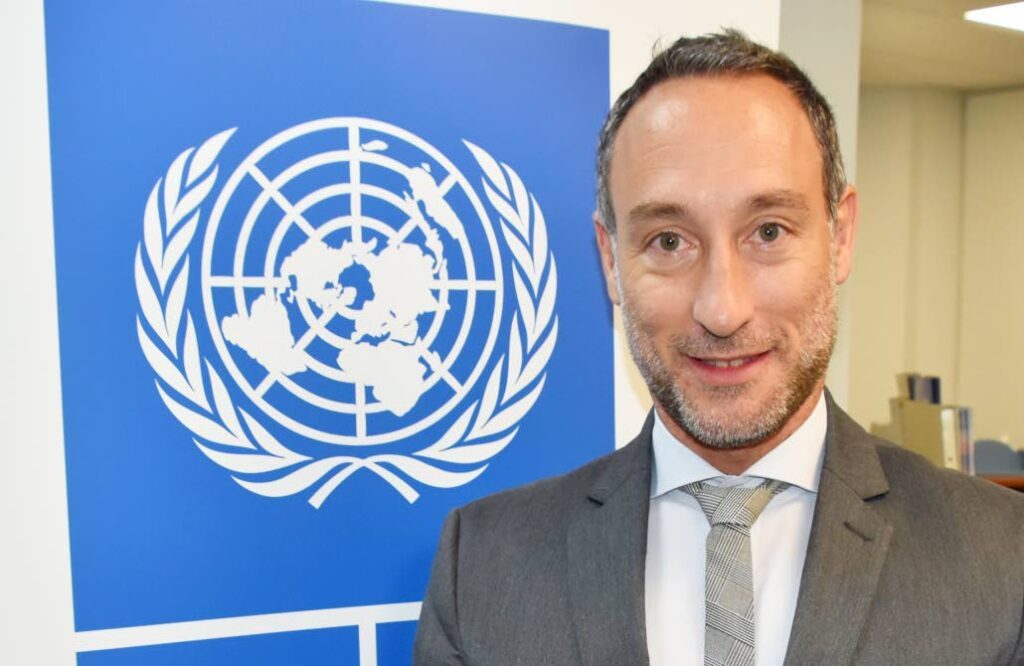SoE: 2024’s lessons from the world

UGO BLANCO
TWENTY TWENTY-FOUR has not been the best year for the world; all red alarms went off. Humanity is under siege. Over the past decade the number of active armed conflicts worldwide has reached unprecedented levels. Last year there were more than 120 armed conflicts ranging around the world, according to the International Federation of the Red Cross, one of the most important humanitarian actors our system has ever created.
More bad news: both global warming and biodiversity loss have intensified in 2024, posing significant challenges to environmental sustainability and, therefore, the future of planet Earth. This year’s Living Planet Report from the World Wildlife Fund reveals a catastrophic 73 per cent decline in the average size of monitored wildlife populations between 1970 and 2020. This alarming statistic highlights the rapid degradation of ecosystems and the pressing need to prioritise conservation efforts.
We, as human societies, normally tend to have a plan to address all these challenges, but it seems that we are starting to run out of solutions. Last month I had the chance to meet Yuen Yuen Ang in South Africa. She is a professor of political economy at Johns Hopkins University, known for her expertise in development, governance, and complex systems.
Her message was bold: there is an urgent need to reset development paradigms considering the interconnected crises – she talks about polycrisis – affecting the world today. Small and developing countries are running out of models.
The United Nations Development Programme (UNDP) recently adjusted the way human development is measured in our world. The Planetary Pressures-Adjusted Human Development Index (PHDI) showed for the first time the environmental cost of human development by accounting for factors such as carbon emissions and material footprint alongside traditional development metrics.
Unsurprisingly, developed nations, often with high Human Development Index (HDI) scores, experienced significant reductions in their PHDI due to their substantial environmental footprints, emphasising the unsustainable nature of their development practices.
Alongside, the state of democracy in many countries long regarded as strongholds of stability and tradition is now raising some critical questions. As Prof Ang advocates, it feels like industrial-colonial models that prioritise mechanical, one-size-fits-all solutions are outdated.
Top-down, Western-centric methods should be replaced by inclusive, localised strategies, fostering experimentation and bottom-up feedback, so societies can effectively transform these crises into meaningful opportunities. Her concept of "polytunity" resonates deeply with me, as well as the call for rethinking governance, valuing diverse solutions, and addressing the moral and ecological dimensions of progress. The world we want demands a new approach.
Given the polycrisis and its interconnected nature, attempting to address these issues with isolated national solutions instead of a co-ordinated multilateral approach simply does not make sense. However, this is precisely what the world seems to be witnessing nowadays.
The inclination of many nations to focus inwardly, prioritising national interests over collective global action, is deeply concerning. The interconnected crises of 2024 have demonstrated that challenges such as climate change, armed conflicts, crime and violence, and biodiversity loss transcends borders and now demands a unified global response. Without a robust multilateral framework, the ability to implement effective, long-term solutions remains severely limited, wasting limited resources and further exacerbating the crises we face.
TT, while not immune to global challenges, has shown positive strides in addressing critical issues. The country’s commitment to renewable energy and economic diversification was evident on the global stage last year.
At the United Nations General Assembly in September, Senator Amery Browne delivered a compelling statement underscoring the nation’s dedication to sustainable development and international co-operation, underscoring the inter-related efforts required to address these issues.
Similarly, at COP29, representatives from the Ministry of Planning and Development highlighted TT’s proactive measures in the energy transition, emphasising the need for greater collaboration and innovation to tackle climate change effectively.
Domestically, the recently announced budget offers promising signals of renewed focus on these key matters. These priorities indicate a forward-looking approach to building resilience and fostering sustainable growth.
Crime remains a critical concern in TT, with the recent state of emergency reflecting broader societal challenges. These issues require a collaborative, comprehensive and inclusive approach. Crime prevention must be at the heart of a national strategy for crime reduction. Our country has some very notable examples such as the CariSecure and PACE Justice initiative’s that bring together multiple stakeholders including some external like the European Union.
As the country approaches a general election in 2025, there is an opportunity to build on progress by fostering unity, trust, and engagement among all citizens. Strengthening communities and empowering youth is pivotal in navigating complex global and local challenges with purpose and resilience.
As TT moves into 2025, UNDP remains committed to serving as a key partner for this region and this country’s people and institutions. By leveraging global, regional, and national expertise, fostering collaboration, and driving innovative solutions, UNDP is committed to supporting the country’s national priorities and development goals.
Enhancing peace and security will be vital to fostering economic diversification in sectors such as tourism and food security while strengthening resilience. With a proactive stance. TT has the potential to emerge as a regional champion in the Caribbean, paving the way for a more sustainable and inclusive future for all.
Ugo Blanco is the UNDP TT Resident Representative

Comments
"SoE: 2024’s lessons from the world"